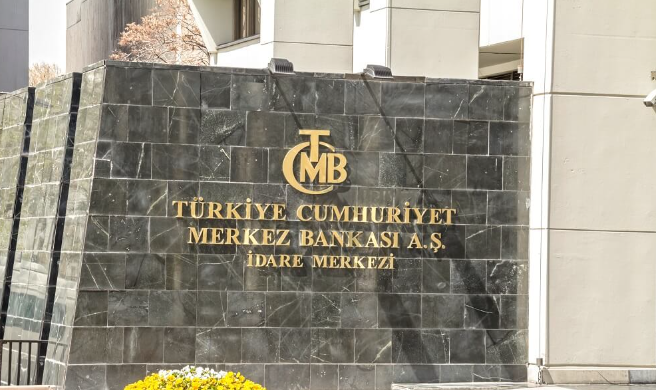Turkey’s central bank (CBRT) began rolling back on Sunday a growing and costly scheme that protects lira deposits from FX depreciation, marking another move toward more orthodox policies following a shift toward interest rate hikes.
The central bank said in the early hours on Sunday that it lifted targets applied to banks for certain levels of conversions of foreign-exchange deposits to the lira-protection scheme, known as KKM. KKM, which is essentially a quasi-FX deposit has grown to $125 bn, where the interest rate differential between banks’ deposit rate and the period currency deprecation is paid by CBRT.
The objective is “to contribute to strengthening macro financial stability by supporting Turkish lira time deposits,” the central bank said in a statement on Sunday. It pledged to continue rolling out similar steps.
CBRT now wants lenders to set a new goal of transitioning KKM accounts into regular lira accounts, in part by dissuading companies and individuals from renewing the KKM accounts.
The target set for the banks is a conversion rate of at least 50% of deposits to be in regular lira accounts and at least 5% for those converted to liras from foreign currencies.
According to a separate decree in the Official Gazette, the central bank also raised lenders’ reserve requirement ratios for FX deposits, further nudging customers into regular lira accounts.
The KKM accounts have cost the government and central bank TL550bn ($20bn) this year alone as the lira has tumbled 31 per cent against the US dollar, according to an estimate by Hakan Kara, a former central bank chief economist.
The central bank said on Sunday it would end a rule that punished banks if they did not convert a sufficient amount of foreign currency deposits into forex protected accounts. At the same time, the amount of reserves banks must hold against short-term foreign currency deposits will be increased, according to an announcement in Turkey’s official gazette.
Kara said he expected that unwinding the use of forex protected savings accounts would be a “gradual process”. He added that it would depend in part on the interest rates savers can earn on lira-based deposits, which are currently running well below the rate of inflation.
“Apparently, the economy administration wants an exit from KKM but it cannot do that, so it’s implementing these macroprudential measures,” said Inanc Sozer, managing partner at Istanbul-based consultants Virtus Glocal.
The new rules on KKM accounts are expected to boost lira deposit rates and may amount to allowing further lira depreciation, which will fuel inflation, said Sozer, who doesn’t expect a significant impact on the stock market after Friday’s drop of 3.2% in the benchmark index. Bond yields could fall in the short-term, he added.
Sources: Reuters, FT, Bloomberg
Follow our English language YouTube videos @ REAL TURKEY: https://www.youtube.com/channel/UCKpFJB4GFiNkhmpVZQ_d9Rg
And content at Twitter: @AtillaEng
Facebook: https://www.facebook.com/realturkeychannel
